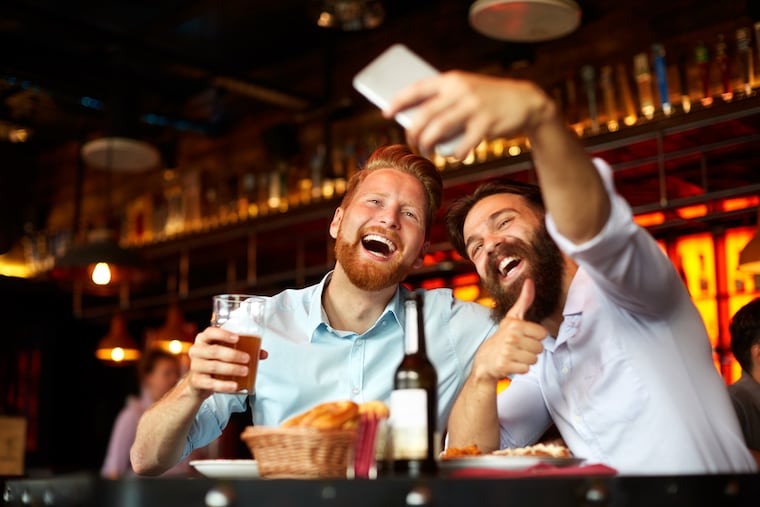College binge drinkers later regret social media posts, study found.
College students who binge drink, frequently post on social media and may later regret their actions.

College students who are prone to binge drinking should think twice before posting on social media.
Researchers at the Texas State University found that students who have too many drinks at once then use their favorite social media sites later regret those drinking-related posts. The results, which were part of an ongoing study of social media and health, were published in the Journal of Studies on Alcohol and Drugs on Friday.
While inebriated, the students are less inhibited and may be more likely to post inappropriate material without considering the future impact, according to Natalie A. Ceballos, the lead researcher and professor in the Department of Psychology.
“Just the fact they are posting while intoxicated increases the chance they will make bad choices on social media,” Ceballos said. “In some cases, these sorts of mistakes have even influenced college admission and later job applications.”
Researchers looked at 425 undergraduates ages 18 through 25 and asked about their alcohol use including quantity and frequency. They defined binge drinking as men consuming five drinks, and women having four drinks at one time. They also asked about the student’s use of social media and whether they posted while drunk.
Snapchat and Instagram were more popular with binge drinkers.
“Facebook is waning in popularity among younger users,” the researchers noted.
Social media may also play a positive role, according to researchers.
Similar to the way harm-reduction messages have been sent to problem gamblers, there may be a way to send instant feedback via cell phones to help disrupt drinking, they concluded.
“As for what form this intervention might take, we’re not really there yet,” Ceballos said. By combining alcohol biosensor technologies that can detect drinking as it happens and the use of apps or other programs on cell phones that provide treatment for smoking cessation, weight loss, anxiety, or other health conditions in the real world, it might become a possibility in the future, she said.
Compared to non-binge drinkers, those students who imbibe too much not only were more likely to post while drunk, they also showed greater emotional investment in social media, allowing it to become part of their identities.
While there is no specific psychiatric diagnosis of addiction to social media, Ceballos said it is possible students might feel rewarded after getting positive reinforcement from their posts, similar to rewards of other addictive behaviors. Over time they could become hooked.
Another interesting finding: Students who reported getting drunk during their middle school years posted on social media while intoxicated more often than those who waited until they were 21 to start drinking heavily.
Ceballos speculated that the group that waited until they were older to drink might be more cautious because they lack as much experience with drinking than those who started younger.